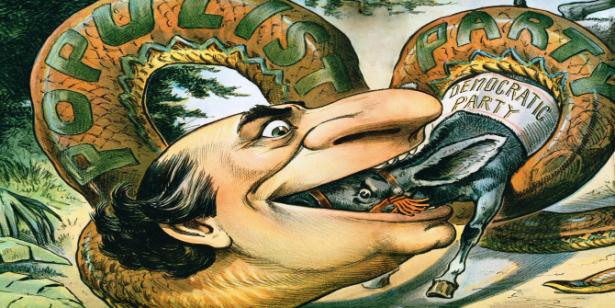The model of left populism that theorists like Ernesto Laclau and Chantal Mouffe have been conjuring is not the most significant left response to right populism in the United States or Brazil and many other places. On the other hand, in countries like Argentina, France and Spain, Laclau’s and Mouffe’s work have been taken up by political actors. All in all, most calls for a left populism insist on the need for a leader like Hugo Chavez in Venezuela (1999-2013), who would also become the living symbol of a homogenized popular will and the artifice of the fights against the enemies of the people. In his academic work, Laclau himself had argued that populist moments of transformation were intrinsic to the name of the leader.
As I explain in my book From Fascism to Populism in History: “from Spain to Argentina and beyond, Laclau was celebrated, and he felt the need to support his political hosts even when he was engaged in academic conferences in Argentina. But Laclau also was able to insert some criticisms of Kirchnerismo as insufficiently polarizing, for example, when he stated that Kirchnerismo “had a populist vocation,” but it was short of populism in its deeds. Laclau was critical of the lack of a clear friend-enemy demarcation in Kirchnerismo, especially in the sense of establishing an “internal frontier” that would effectively divide the “popular” camp from the other camp. Laclau argued that classical Peronism had done this, as had Evo Morales and Hugo Chávez in Bolivia and Venezuela, respectively, where the leaders were also indispensable. Laclau defended strong executives against parliamentarianism.”
Like Laclau, Mouffe had opposed the Kirchners to “a series of interests that are against the democratization of the country.” In the past (just 7 years ago!) Mouffe advocated for the need for a “latinoamericanization of Europe” but more recently Latin American populists have been mostly silenced in her work. In her last populist proposal for the left, rather mysteriously, Mouffe does not talk much about the past experiences of Latin American left-wing populism. In fact, she specifically sets them aside at page 10 of her new book.
Are the latest adventures of Latin American populists from corruption, to repression and even to the Chavista remnants of the Maduro dictatorship inconvenient truths? Why can’t these authoritarian pasts be addressed? Why does Mouffe not include their latest experiences in a critical, and self-critical, theory of a populism of the left?[1] Overall, Mouffe insists, the populist leader would bypass institutional channels and effectively create a more direct form of democracy. But in the current context, is this new left populism going to have an infallible leader who in impersonating and ventriloquizing the voice of the people also caters to nationalism and the current ethnic intolerance of diversity?
These populist desires for the left not only want to forget the Latin American authoritarian precedents for this populism but also the more recent xenophobic resentment of the traditional voters of the left, especially in Europe but also in the United States. They somehow forget that in the name of leaving ideas and political programs behind and in embracing political myth, the left ends up being oblivious to its anti-fascist past.[2]
Notes
[1]See my criticism in my book: From Fascism to Populism in History (Oakland: University of California Press, 2017) 211-216, 312.
[2]For a critique of this argument for Europe see Eric Fassin, Populisme: le grand ressentiment (Paris: Textuel, 2017) and Nadia Urbinati, Me The People: How Populism Transforms Democracy (Cambridge: Harvard University Press, 2019) and for Latin America, see Carlos de la Torre, Populismos (Barcelona: Tibidabo, 2017).
[Essayist Federico Finchelstein is an Argentine historian and chair of the history department at the New School for Social Research. After receiving his undergraduate education at the University of Buenos Aires, he received his Ph.D. from Cornell University in 2006. He has previously taught at Brown University. His most recent book is A Brief History of Fascist Lies (U of California Press, 2020)].


Spread the word